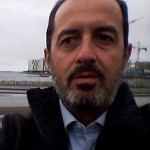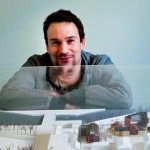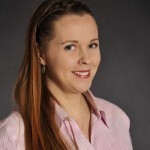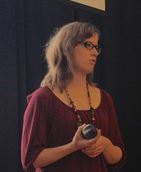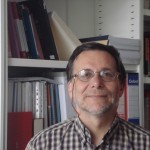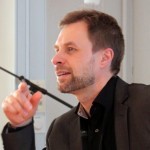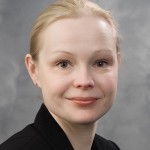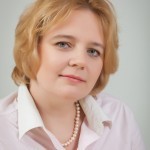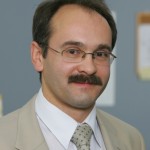Fabio Feudo, is the executive director of LSC. He is journalist and social researchers in public policies. He has been working on several research projects dedicated to urban development, human rights and legal framework for the development of civil society and socialisation of scientific and technological research. Recently he also focused his research interests on the concept of Responsible Research and Innovation (RRI) and on the relationship between science and materials. He has a significant experience in public relations management, project design and scientific communication in particular at European level. He has been acting as evaluator for the European research projects funded under FP7 and Horizon 2020. He acted as member of the Italian National Committee on Science in Society during the Seventh Framework Programme. He is a member of the scientific committee of SAM (Science and Materials) promoted in the framework of the Social Value of Materials (SOVAMAT) initiative.
Janne Wikström is a higher education administrator since 2002 at University of Helsinki. He is also a social science scholar within sociology, political science and public administration since 2007. Wikström is about to defend his PhD thesis in Political Science and Public Administration in the winter of 2016. His thesis deals with issues of legitimacy of academic work (primarily research and teaching) at Finnish universities. His thesis is connected to the scholarly debate on the interaction between researchers and other actors in the society. Wikström has a number of publications in the field of the societal interaction of the universities during the period 2007-2015.
Dr. Kaisa Matschoss works as a postdoctoral researcher at the Consumer Society Research Centre at the University of Helsinki. Her particular research focus relates to energy and environmental issues. Her research interests lie in the fields of public engagement, sustainable consumption and energy systems. She has conducted surveys and focus group discussions studying consumer behaviour and decision making. Previously, she has explored emerging customer needs for smart grid applications, customer interest in smart energy efficiency services and energy efficiency retrofits in existing building stock (ENTRANZE-project). In addition to the PE2020-project, she is currently studying smart energy transition (SET), the role of intermediary organisations in energy transition (Tripod) and public and stakeholder engagement in sustainability (CASI- and CIMULACT-projects).
Kirsi Pulkkinen is a doctoral researcher at the University of Lapland. In addition to the PE202 project, she works in a Nordic FINNUT PERFECT project (http://www.uia.no/om-uia/fakultet/fakultet-for-samfunnsvitenskap/institutt-for-statsvitenskap-og-ledelsesfag/effects-of-changes-in-leadership-and-management-structures-in-nordic-higher-education) that studies the performance effects of changes in leadership and management structures in Nordic Higher Education. Her doctoral research focuses on evidence-based policy making and knowledge transferring interaction between university researchers and ministry-level public policy makers. Previously she worked as an expert of higher education cooperation and advisor on civil society collaboration and advocacy at the Ministry for Foreign Affairs Finland.
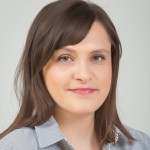
Photo taken by Martynas Ambrazas
Dr. Loreta Tauginienė is a researcher at VUBS and a consultant in academic ethics. She has strong analytical skills in the research methodology and analysis of science and innovation policy, published about 10 publications on the implementation of social responsibility from the perspective of the management of research performance and stakeholder engagement. Her previous experience also relates to the quality assurance systems, science management. She has contributed to few structural funds projects relative to the creation of quality assurance system, science communication, development of national research and higher education monitoring systems. In addition, Loreta was given a Baltic University Programme Special Award for the Best PhD thesis in 2013 – ‘Social Responsibility in the Management of University Research Performance’.
Luciano d’Andrea, sociologist, has been working on issues at the cross roads of social dynamics, economics and technological transformation, with special reference to science-society relations. He has worked as a senior research consultant in developing and emerging countries, especially in Africa. He has authored many articles and books, including: “Materials, Technology and Society: contributions from a sociological perspective”, Materiaux & Techniques, 102, 507, 2014 (with A. Declich); Knowledge Brokerage for Environmentally Sustainable Sanitation, BESSE Project, European Commission DG Research (co-editor with Wiebe E. Bijker and Giovanni Caiati); Handbook on the socialisation of scientific and technological research, SS-ERC Project, European Commission DG Research (co-editor with Wiebe E. Bijker); “A different interpretation of science-society relations: the socialization of scientific and technological research”, JCOM 08(03), 2009; “The sociological nature of science communication”, in JCOM, 4(2), 2005 (with A. Declich); Communication of science, communication in science, with G. Roffi, B. Pasveer, M. Bufon in “Communicatng European Research 2005”, M. Claessens (ed.), European Commission.
M.Soc.Sc. Maria Pietilä works as doctoral student at the Department of Political and Economic Studies at the University of Helsinki. Her dissertation concerns the interconnections between university governance, research work and academic careers. In particular, she is interested in studying how academics interpret and transform global policy ideas into organisational action. Her work in PE2020 relates to WP3: Context-tailoring and piloting of best practice PE processes. In PE2020, she has conducted small group discussions, organised various seminars with collaborators, collected and analysed research data, and disseminated research results.
Ph.D., Adjunct Professor Mikko Rask works as a Senior Researcher at the Consumer Society Research Centre at the University of Helsinki. He has experience of several national and EU projects on citizen deliberation, technology assessment, foresight, research and innovation policy, and sustainability issues. He has published widely on these themes in international journals and books, taught courses on futures studies and lectured in several universities. Currently, in addition to the coordination of the PE2020-project, he works in the CIMULACT and SET (Smart Energy Transition ) -projects. Some of his previous projects include CIVISTI, CHANGING BEHAVIOUR, World Wide Views on Global Warming, Transnational Deliberation – Elements of Influence in Transnational Deliberative Democratic Processes, and the Future Concepts of Urban Housing.
Dr. Minna Kaarakainen works as a University Researcher at the centre. She has a background in social sciences and welfare studies. Her recent research themes have focused welfare and social politics, client orientation and foresight. She has taught these themes mainly in the University of Eastern Finland. She is interested in social innovations and evaluation studies and also knowledge of tensions and trends that shape the role of the society. She has experience of several national EU regional projects and policy analysis and evaluation.
Dr. Saule Maciukaite-Zviniene has a doctoral degree of social sciences and is an active member of academia and society. She is a policy adviser, a senior researcher and the European Commission expert. She is an author of number of scientific publications in peer-reviewed journals and studies on policy evaluation, deliberative democracy, research and innovation policy and governance, a co-author of national reports to the EC and the UN on R&I and higher education. She has participated in numerous Framework projects,activities of the European University Association and the European Commission.
Timo Aarrevaara is a professor of public management at the University of Lapland, and has professional experience in public administration as well as in research and teaching. Professor Aarrevaara has been the principal investigator in a number of projects, including “The changing academic profession in Finland” based on the international Changing Academic Profession (CAP) project , “The changing academic profession: the impact of globalization, diversification and institutional reorganization on academic work and employment conditions in Finland” (EUROAC-FIN), the principal evaluator of the review of Virtual Universities in Finland and a work package leader in the Public Engagement Innovations for Horizon 2020. Professor Aarrevaara has strong international higher education research links, and is a co-editor of Springer’s The Changing Academy Series and author or co-author of several papers and book chapters.
Prof. Dr. Vytautas Dikčius has acquired his scientific degree in Social Sciences, is a member of EMAC (European Marketing Academy), a deputy member of MITA (Science, Innovation and Technology Agency) in area of Social Sciences, an expert of Lithuanian Academy of Science. He has worked as a project manager for European Bank for Reconstruction and Development for 8 years, and as business consultant for 15 years with different private and governmental companies and projects. V. Dikčius has been teaching for 20 years at different universities and business schools various marketing and research related courses. He has published more than 25 articles in scientific journals (9 of them were published in ISI journals) and issued 4 textbooks during last 15 years. He was a supervisor for more than 110 master papers and for 5 doctoral students. The areas of research interests include pricing, marketing communications, sensory marketing, consumers’ behaviour in different cultures, innovation policy.
